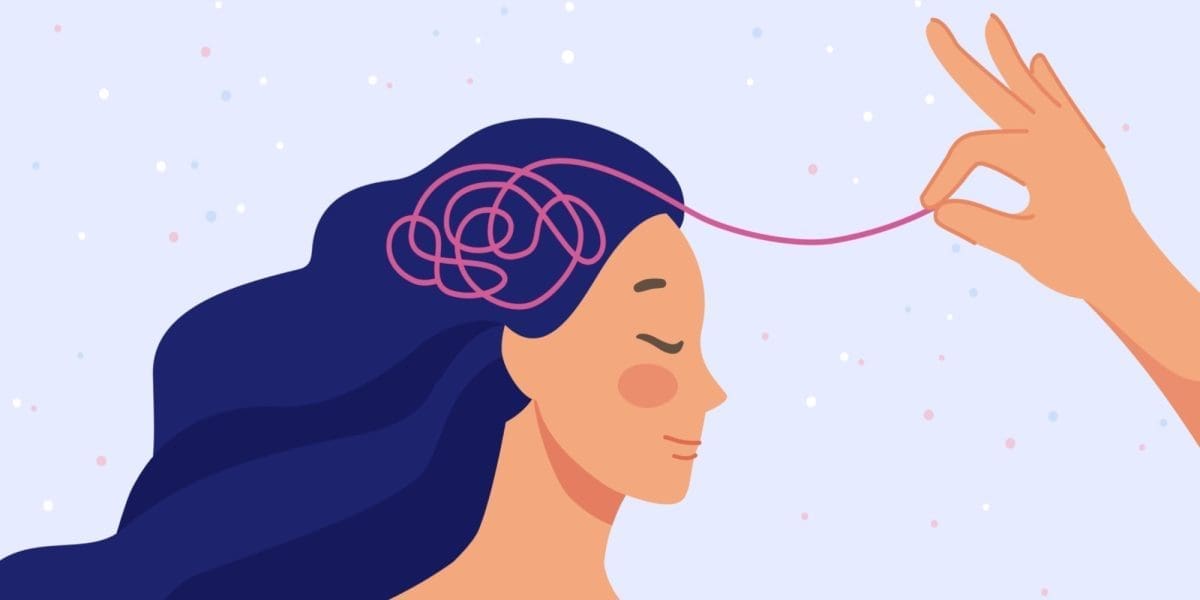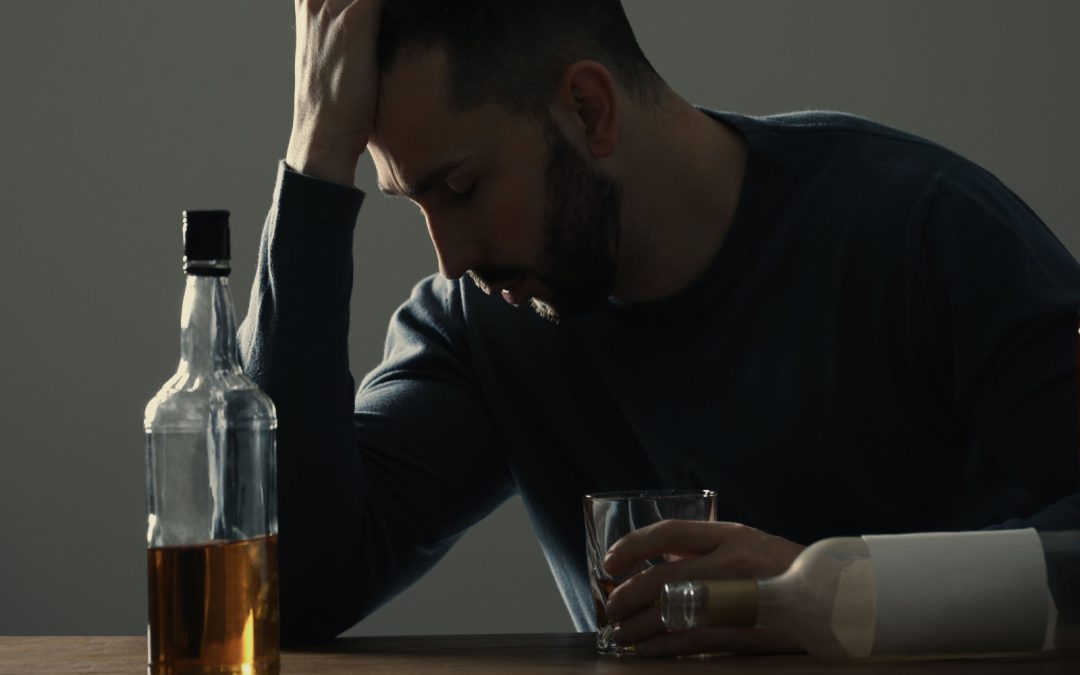Physicians and researchers have observed the ties between alcohol and depression for decades. With high rates of overlap between the two, it becomes natural to wonder more about the extent of their connection. Does alcohol abuse cause depression? Does depression lead to addiction? Or is the relationship between alcohol and depression more complex than that?
Today, we want to delve deeper into the evident connections between mental health conditions and substance use disorders. Read further to discover the answers to all of your questions about the connection between alcohol and depression.
Symptoms of Depression

Before we can discuss how alcohol and depression are connected, it may help to know how to identify depression alone. Depressive disorders come in several shapes and sizes, and they don’t always affect everyone in the same way.
For example, some people know depression as constant sadness and a deep-rooted sense of anguish. For others, depression is more like an empty void that prevents them from feeling anything at all.
Other common symptoms of depression include:
- Fatigue
- Difficulty falling or staying asleep
- Losing interest in hobbies or activities
- Irritability
- Difficulty concentrating or completing tasks
- Unexplained aches and pains
- Thoughts of death or dying
If someone exhibits at least five symptoms of depression for two weeks or longer, they may have major depression. Under certain circumstances, substance use can be one of these symptoms, which is often the source of the relationship between alcohol and depression. But before any conclusions can be reached, it’s important to learn how to tell when someone’s drinking habits have reached a problematic level.
Signs of Alcohol Abuse
Addiction to alcohol and depression can exist independently of one another. Therefore, before we evaluate how they interact, we also need to address alcohol abuse as a standalone issue
Heavy alcohol consumption is difficult to define in a singular way. Factors like sex, weight, and genetics can affect how alcohol influences any given individual. Broadly speaking, though, heavy drinking in men is defined as 15 or more drinks in a week. For women, the number of drinks per week drops to eight.
Even with that in mind, occasional instances of heavy drinking don’t always indicate addiction. To determine whether someone’s alcohol consumption is a problem, they must consider additional signs and symptoms as well.
Some of the warning signs of alcohol misuse include:
- An inability to stop drinking once you start
- Friends and family expressing concern
- Feeling guilty about drinking
- Wanting to drink less but not being able to stop
- Drinking with the intention to forget
- The development of a mental health problem (i.e. depression, anxiety, or memory issues)
- Needing to drink in greater amounts to achieve the same effect as before
- Neglecting hobbies or necessary tasks to pursue drinking
The Connection Between Alcohol and Depression
The ties between alcohol and depression go both ways. First, individuals with depression may come to rely on alcohol to escape their troubles for a short time. Alcohol clouds their minds and may help them relax. In the throes of depression, a break from the anguish and distress can sound very appealing, even (or especially) if it means forgetting the times they are intoxicated.
With that said, alcohol is not a healthy coping mechanism. It may succeed in temporarily burying someone’s stressors, but the long-term effects of alcohol abuse are not worth a brief reprieve. In other cases, if alcohol abuse comes first, those very effects could actually be what leads to depression in the first place. In this way, alcohol and depression can bring out the worst in each condition.
Alcohol addiction is isolating and demoralizing. People have lost their jobs, homes, and relationships to severe addiction. As troubles continue to pile on top of each other, individuals grow all the more likely to return to alcohol as a temporary solution.
It becomes a vicious cycle that many struggle to stop. Drinking can drive away someone’s support system, increasing the risk of depression, and when symptoms of it appear, they only drink more to cope.
How Alcohol and Depression Alter Moods
Through a more scientific and biological lens, what happens to the body when someone chooses to drink alcohol? Alcohol and depression are linked by more than environmental factors that bring them in close contact. Alcohol has a genuine, chemical impact on the brain and its processes.
To start, alcohol is a depressant that targets the central nervous system. Depressants slow brain activity, which results in a number of behavioral, cognitive, and mood changes. This is why people often experience memory problems, coordination issues, and lowered inhibitions when they drink alcohol.
In terms of mood, alcohol can influence people to feel a few different ways. Some people find that it helps them unwind and calm down. Others may experience worsened anxiety or a boost in confidence.
Moreover, the impairment of the brain’s decision-making functions can lead people to make decisions they later regret. If someone has depression and partakes in risky activities while intoxicated, like spending large sums of money or getting into a fight, their depression symptoms may worsen once the effects of alcohol wear off.
Alcohol and Depression Treatment

Someone may think that having both an addiction to alcohol and depression would require two different types of treatment. As it turns out, though, that’s not entirely correct. Co-occurring disorders should not be treated one at a time. Instead, because they’re often so closely tied together, they benefit far more from specialized dual diagnosis treatment. For this reason, alcohol and depression are best addressed as part of one, larger issue.
But where does treatment for alcohol and depression start?
Medical Detox
The first stage of any addiction treatment often involves a medical detox. Detox is necessary for those who have developed an alcohol dependence, which may occur after drinking excessively for a consistent, long time. In such a case, their body forgets how to function properly without alcohol. As a result, it needs a transitionary period to adjust back to normal.
During detox, unpleasant withdrawal symptoms are common. A medical detox allows someone to stop drinking alcohol safely, even with these symptoms in mind. The Willough at Naples offers a detox program that keeps patients under 24/7 supervision by a team of licensed physicians. A knowledgeable team helps our clients relax, knowing experts are present to help them navigate any withdrawal symptoms.
Dual Diagnosis Treatment
After detox, the crux of dual diagnosis treatment can start, ensuring an individual gets the help they need for both their addiction to alcohol and depression. The Willough at Naples boasts an extensive dual diagnosis program for this very purpose.
One of the core components of dual diagnosis treatment is psychotherapy (or talk therapy). Several different types of talk therapy exist, and patients gain the most from participating in more than one. They teach vital life skills and healthy coping mechanisms with which to replace alcohol.
It’s important to note, however, that psychotherapy is not the only form of treatment used. A more extensive list of treatment options for alcohol and depression would include:
- Psychiatric evaluation
- Individual therapy (i.e. cognitive behavioral therapy)
- Group therapy
- Family education
- Recreational therapy
- Medication education and management
- Relapse prevention
- Links to community-based resources (i.e. Alcoholics Anonymous)
The Willough at Naples utilizes all of these and more to provide a full continuum of care to patients with alcohol and depression-related problems. We understand the delicate balance between these issues and take great strides to guarantee both are handled with respect, compassion, and efficacy.
Contact The Willough at Naples Today
The Willough at Naples provides exceptional depression and alcohol treatment for struggling individuals. If you suspect you have both an addiction to alcohol and depression, reach out to us today. Our addiction and mental health experts will work with you to develop an individualized treatment plan that addresses your exact needs.
To learn more about our detox or dual diagnosis programs, call our admissions team at (239) 688-3063. You may also fill out a confidential contact form if you prefer. We will be happy to answer any questions and help guide you on the path to long-term recovery.
Our treatment center provides the right environment, tools, and dedicated staff you need to heal from mental illness and substance abuse. All you need to bring is a desire to get recover from alcohol and depression, and together we can make it a reality.

